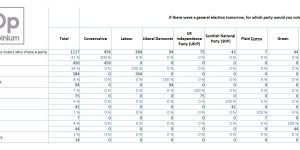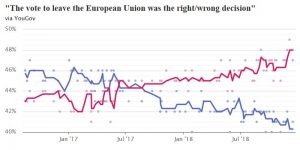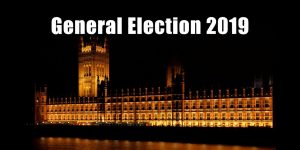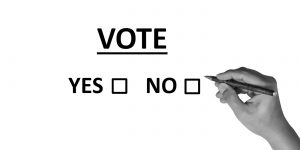Some MPs have subsequently claimed that `Parliament can do whatever it likes’. But that isn’t true, of course. Parliament consists of a number of individual MPs who have been elected by their constituents to represent them. Political parties are not recognised in our system of government and Parliament does not have the right to change the whole nature of Britain’s constitution. We have (or are supposed to have) an elective democracy not an elective dictatorship. Parliament may, in law and in day to day issues, be the sovereign power in the state, but the electors are (in the words of Dicey’s `Introduction for the Study of the Law of the Constitution’ published in 1885) `the body in which sovereign power is vested’. Dicey goes on to point out that `in a political sense the electors are the most important part of, we may even say are actually, the sovereign power, since their will is under the present constitution sure to obtain ultimate obedience.’ Bagehot, author of The English Constitution, 1867, describes the nation, through Parliament, as `the present sovereign’.
In 1972, when Heath decided to take Britain into the Common Market, he used Parliament’s legal sovereignty to deny and permanently limit the political sovereignty of the electorate. Heath and Parliament changed the basic rules and they did not have the right (legal or moral) to do that. The 1972 European Communities Bill wasn’t just another Act of Parliament. Heath’s Bill used Parliament’s legal sovereignty, and status as representative of the electorate, to deny the fundamental rights of the electorate.
Precedents show that the British constitution (which may not be written and formalised in the same way as the American constitution is presented) but which is, nevertheless, enshrined and codified in the Magna Carta (1215), the Petition of Right (1628), the Bill of Rights (1689) and the Act of Settlement (1701) requires Parliament to consult the electorate directly where constitutional change which would affect their political sovereignty is in prospect. (The 1689 Bill of Rights contains the following oath: `I do declare that no foreign prince, person, prelate, state or potentate hath or ought to have jurisdiction, power, superiority, pre-eminence or authority within this Realm.’ Since this Bill has not been repealed it is clear that every treaty Britain has signed with the EU has been illegal.)
Yes we should leave now.











